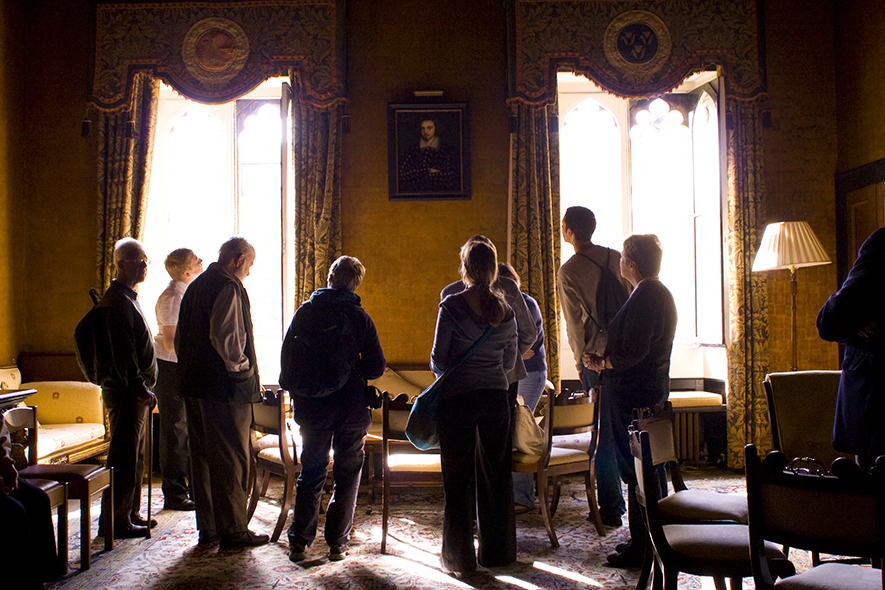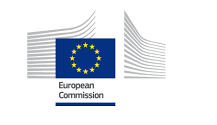Grants for Established Researchers
Grant schemes differ between funding bodies with regard to size, duration, subject limitations and possibilities for international collaboration.
This page provides information on the most common and substantial schemes in the arts, humanities and social sciences. You can find more details about each scheme by clicking on the scheme name below; please feel free to contact the School Research Facilitators for further information on each.
AHRC Responsive Mode: Curiosity Awards
Funding: £100,000 at 100% full economic cost (fEC), AHRC will fund 80% of the fEC.
Duration: Up to five years.
Timetable: Application deadlines are four times a year: March, June, September and December.
Eligibility: AHRC welcomes applications from researchers across all career stages, from early career to established researchers. The project lead and any project co-leads must be employed and supported by an eligible organisation for at least the duration of the UKRI support; it is not a requirement that a contract be in place at the point of application submission. It is also not a requirement to have a permanent employment contract to apply for funding.
Purpose: Curiosity awards support early-stage ambitious and novel fundamental research which has the potential to act as a springboard towards new and exciting research agendas. The funding opportunity celebrates the full diversity of the arts and humanities. It is flexible, and applications are welcomed from teams, networks, and solo researchers.
Contact Anna Cieslik for more information.
AHRC Responsive Mode: Standard Research Grants
Funding: £50,000 to £1.5 million at 100% full economic cost (fEC)
Duration: Up to five years.
Timetable: Applications may be submitted at any time – allowing time for processing. The majority of decisions are announced within 30 weeks of submission.
Eligibility: At the time of application, applicant PIs must have either a contract of employment with their research organisation in place for the duration of the award, or an assurance from the submitting institution that, if the proposal is successful, a contract of employment will be given that covers the period of the award plus an additional 3-6 months. This scheme in particular lends itself to un-established researchers to apply as co-investigator or postdoctoral research associate.
Purpose: Applications is for any type of ‘blue-sky’ or applied research. This funding stream supports collaborative research projects that require leadership from more than one scholar. You must include a principal investigator and at least one co-investigator jointly involved in the development and management of the project and co-authored research outputs.
Contact Anna Cieslik for more information.
ESRC Responsive Mode: Standard Grant
Funding: £350,000 to £1 million at 100% full economic costs (fEC), funded at 80% fEC.
Duration: Up to five years
Timetable: Applications may be submitted at any time – allowing time for processing. The majority of decisions are announced within 26 weeks of submission.
Eligibility: Applicants are eligible for funding whether or not they are established members of a recognised research organisation (RO). Applicants for research grants who are not established members of a recognised RO must be accommodated by the RO and provided with appropriate facilities to carry out the research. For such applicants, the RO must provide a covering statement confirming that, in the event of a grant, it will provide accommodation and facilities for the applicant such as would be provided for established members of staff. This scheme is intended for experienced PIs . Less experienced researchers should apply as co-investigators or be included on an application as postdocs.
Purpose: As well as research on economic and social issues, we also support the national data infrastructure that underpins this research. Research grant applications can draw from the wider sciences, but the social sciences must represent more than 50% of the research focus and effort.
Your proposal can cover anything from a standard research project through to a large-scale survey, research methodology or infrastructure development (such as the compilation, classification and cataloguing of data). For infrastructure applications you should clearly outline the value for a broad community of researchers or wider audiences.
Contact Anna Cieslik for more information.
European Research Council Advanced Investigator Grant (ERC AdG)
Funding: up to €2.5 million (with an additional €1 million available for certain circumstances).
Duration: Up to five years.
Eligibility: Candidates can be any age and of any nationality. Candidates are expected to have a track record of significant research achievements in the last 10 years.
Purpose: ERC Advanced Grants are designed to support outstanding established, leading researchers in all disciplines who require long-term funding to pursue a ground-breaking, high-risk project. The aim is to fund projects carried out by individual teams headed by a single Principal Investigator (PI) and, as necessary, include additional team-members. The constitution of the research team is flexible.
A competitive Advanced Grant Principal Investigator should be an exceptional research leader in terms of the originality and significance of their research contributions.
Contact Elizabeth Penner for more information.
European Research Council Consolidator Grant (ERC ConG)
Funding: up to €2 million (with an additional €750,000 available for certain circumstances).
Duration: Up to five years.
Eligibility: Candidates can be any age and of any nationality, though must have obtained their PhD more than seven years but less than twelve years before the 1st January of the Work Programme year. For researchers who are more than twelve years post-PhD, the ERC's Advanced Grant scheme (see below) may be appropriate.
Purpose: ERC Consolidator Grants are designed to support outstanding mid-career researchers in all disciplines who have already created their own independent research team or programme. The aim is to fund projects carried out by individual teams which are headed by a single Principal Investigator (PI) and, as necessary, include additional team-members. The constitution of the research team is flexible.
A competitive Consolidator Grant Principal Investigator must have already demonstrated the research independence. Applicants should also be able to demonstrate a promising track-record of achievements appropriate to their research field and career stage, including significant publications (as main author) in major international peer-reviewed multidisciplinary journals, or in the leading international peer-reviewed journals of their respective field. They may also demonstrate a record of invited presentations in well-established international conferences, granted patents, awards, prizes etc.
Contact Elizabeth Penner for more information.
European Research Council Starting Grant (ERC StG)
Funding: Up to €1.5million (with an additional €500,000 available for certain circumstances as a one-off cost).
Duration: Up to five years.
Eligibility: Candidates can be any age and of any nationality, though must have obtained their PhD more than two years but less than seven years before the 1st January of the Work Programme year. For researchers who are seven-twelve years post-PhD, the ERC runs the Consolidator Grant scheme.
Purpose: ERC Starting Grants are designed to support outstanding early-career researchers in all disciplines who are beginning to create their own independent research team or programme. The aim is to fund projects carried out by individual teams which are headed by a single Principal Investigator (PI) and, as necessary, include additional team-members. The constitution of the research team is flexible.
A competitive Starting Grant Principal Investigator must have already shown the potential for research independence. For example, it is expected that applicants will have produced at least one important publication without the participation of their PhD supervisor. Applicants should also be able to demonstrate a promising track-record of early achievements appropriate to their research field and career stage, including significant publications (as main author) in major international peer-reviewed multidisciplinary journals, or in the leading international peer-reviewed journals of their respective field. They may also demonstrate a record of invited presentations in well-established international conferences, granted patents, awards, prizes etc.
Contact Elizabeth Penner for more information.
European Research Council Synergy Grant (ERC SynG)
Funding: up to €10 million.
Duration: Up to six years.
Purpose: This scheme is not currently running but is intended to enable a small group of Principal Investigators (between 2 and 4) and their teams to bring together complementary skills, knowledge, and resources in new ways, in order to jointly address research problems
Contact Elizabeth Penner for more information.
Gerda Henkel Foundation Research Projects
Funding: There is no maximum funding level given, though applications tend to be around €100,000 per project.
*Please be aware that researcher salaries are expected to by covered by the Foundation's stipends, which are lower than salaries set by the University. It is expected that the Department will need to either find or match-fund the difference. Details of what the Foundation does and does not cover.
Duration: Funding is for projects between 1 and 24 months.
Timetable: The Foundation committees usually hold their meetings twice a year: in June for a project start date in December, and November for a start date in May. Applications have to be in the Foundation's office by the deadline day. The date of the postmark is not valid. Smaller funding amounts (max. EUR 25,000) are granted by the Foundation through a simplified procedure with a deliberation time of approximately three to four months. Please follow the exact same application procedure for smaller funding amounts as for regular research scholarships.
Eligibility: Candidates can apply regardless of their nationality and place of work. Applications for research scholarships can only be made by Postdocs or scholars with Post Doctoral Lecture Qualification, which is equivalent to Senior Lecturer, Reader or Professor.
Purpose: The funding activities concentrate on German and foreign academics in the fields of historical humanities. Research projects in the following fields are supported in particular: Archaeology; History of Art; Historical Islamic Studies; History; History of Science; History of Law; Prehistory and Early History.
Since 2008 the Foundation has also increasingly addressed issues of great relevance to contemporary life and the future, above all as part of its special “Islam, the Modern Nation State and Transnational Movements” and “Security, Society and the State” programmes. As part of the Lisa Maskell Fellowships, since 2014 the Foundation has been supporting young scholars in the humanities in both Africa and Southeast Asia. Starting in 2015, the Foundation has with its “Patrimonies” funding initiative focused more strongly on the preservation of cultural heritage, specifically in regions experiencing crisis.
Horizon Europe 2021-2027
Horizon Europe is the EU’s key funding programme for research and innovation with a budget of €95.5 billion. It tackles climate change, helps to achieve the UN’s Sustainable Development Goals and boosts the EU’s competitiveness and growth. The programme facilitates collaboration and strengthens the impact of research and innovation in developing, supporting and implementing EU policies while tackling global challenges. It supports creating and better dispersing of excellent knowledge and technologies. It creates jobs, fully engages the EU’s talent pool, boosts economic growth, promotes industrial competitiveness and optimises investment impact within a strengthened European Research Area.
Legal entities from the EU and Associated Countries can participate. The UK is eligible to apply for EU funding as an Associated Country.
New elements in Horizon Europe
European Innovation Council: Support for innovations with potential breakthrough and disruptive nature with scale-up potential that may be too risky for private investors. This is 70% of the budget earmarked for SMEs.
Missions: Sets of measures to achieve bold, inspirational and measurable goals within a set timeframe. There are 5 main missions as part of Horizon Europe.
Open science policy: Mandatory open access to publications and open science principles are applied throughout the programme.
New approach to partnerships: Objective-driven and more ambitious partnerships with industry in support of EU policy objectives.
Further information on the Horizon Europe Programme and details on how to apply for EU funding can be found through:
- The Horizon Europe webpage.
- The Research Operations Office website, which includes a dedicated page on Brexit.
- The UK Research Office (UKRO) website. UKRO is the European office of the UK Research Councils and members of the University have access to the resources on the UKRO website (you will need to set up an account there if you have not yet done so).
- Your School Research Facilitator, Dr Elizabeth Penner, who is happy to meet with potential applicants to discuss European funding further.
Humanities in the European Research Area (HERA via AHRC)
Funding: Varies according to specific call
Duration: Varies according to specific call
Purpose: These are collaborative research projects that are launched every 2/3 years under specific, humanities based themes.
Contact Elizabeth Penner for more information.
Leverhulme Research Project Grants
Funding: Up to a maximum of £500,000. However, in practice, the great majority of these grants are awarded for sums of up to £250,000 over a duration of two to three years (an average award is around £150,000).
Duration: Up to five years
Timetable: Research Project Grants are assessed via a two-stage process. In the first stage, applicants should complete an Outline Application form. Outline Applications can be submitted at any time and their assessment is normally completed within three months. Details of the procedure for the second stage, namely preparation of a Detailed Application will be sent to those whose Outline Application has been approved.
Eligibility: The applicant (Principal Investigator) must take responsibility for directing the grant, and his/her employing institution must also agree to administer the grant. Eligible applicants will already be employed by the eligible institution or be an academic who has maintained close links with that institution following retirement. Applications can be submitted by those holding contract research posts provided that their appointment continues for a period at least equal to the span of the requested award. Up to 3 co-applicants from the same or different UK institutions may also be included. Overseas co-applicants are allowable.
The Trust does not fund research which is of direct relevance to clinicians, medical professionals and/or the pharmaceutical industry.
Purpose: The aim of these awards is to provide financial support for innovative and original research projects of high quality and potential. The grants provide support for the salaries of research staff engaged on the project, plus associated costs directly related to the research proposed, and the award is paid directly to the institution at which the applicant is employed.
Proposals are favoured which:
- reflect the personal vision of the applicant;
- demonstrate compelling competence in the research design;
- surmount traditional disciplinary academic boundaries;
- involve a willingness to take appropriate degrees of risk in setting research objectives.
Applicants are therefore strongly advised to consult the statement on the Leverhulme Trust’s approach to grant-making.
Contact Anna Cieslik for more information.
Nuffield Foundation Grants for Research and Innovation
Funding: Grants normally range from £10,000 to £250,000, although the majority are worth between £50,000 and £150,000.
Duration: Between six months and three years in duration, but we will occasionally consider proposals with a larger budget or longer timescale.
Timetable: The scheme operates a two-stage process with deadlines for outline applications in late October/early November, mid-March and early July of each year; full applications are due in early January, early May and late August.
Eligibility: In general, the Foundation awards grants to a wide range of organisations including, but not confined to, universities based in the UK and for projects focused on the UK context. They do welcome applications from UK-based organisations to carry out collaborative projects, possibly involving overseas partners. For full eligibility details please consult the scheme website.
Purpose: Grants will support research, practical experiments or development work in the following areas:
- children and families – helps to ensure that the legal and institutional framework is best adapted to meet the needs of children and families;
- education – supports innovative research and development in specific priority areas;
- law in society – promotes access to and understanding of the civil justice system;
- open door – for projects that improve social wellbeing and meet trustees’ wider interests but lie outside other programme areas.
The foundation will not fund organisations outside the UK or projects that take place outside the UK. Collaboration with partners in European or Commonwealth countries is permitted.
Contact Anna Cieslik for more information.
Wellcome Career Development Awards
Funding: Salary (if required) and the resources needed for the research programme
Duration: 8 years.
Timetable: Two rounds a year. The next deadline is 26 November 2024.
Eligibility: Open to mid-career researchers who are ready to lead a substantial and innovative research programme. Eligibility is based on already having completed one or two substantial periods of resesarch after your initial training and have made important contributions to your area of research. Applications must have sponsorship from an eligible host organisation (UK, Republic of Ireland, or low-or middle income country - appart from India and mainland China). Those who hold permanent, open-ended or long-term rolling contracts within the past three years are not eligible to apply.
Purpose: This scheme provides funding for mid-career researchers from any discipline who have the potential to be international research leaders. They will develop their research capabilities, drive innovative programmes of work and deliver significant shifts in understanding that could improve human life, health and wellbeing. The Wellcome Trust funds research in social, cultural and historical contexts of medicine, health and wellbeing. Please also read the Wellcome Trust Strategic Plan for further information.
Contact Anna Cieslik for more information.
Wellcome Discovery Awards
Funding: Resources needed for the research programme
Duration: 8 years.
Timetable: Two rounds a year. The next deadline is 03 December 2024.
Eligibility: Open to researchers who want to pursue bold and creative research ideas. The lead applicant will have international standing as a research leader in their field, experience of leading innovative and creative research, and a track record of managing and training others. Applications must be based at an eligible host organisation (UK, Republic of Ireland, or low-or middle income country - appart from India and mainland China). Salary costs must be paid by the host organisation.
Purpose: This scheme provides funding for established researchers and teams from any discipline who want to pursue bold and creative research ideas to deliver significant shifts in understanding that could improve human life, health and wellbeing. The Wellcome Trust funds research in social, cultural and historical contexts of medicine, health and wellbeing. Please also read the Wellcome Trust Strategic Plan for further information.
Contact Anna Cieslik for more information.
Wellcome Early-Career Awards
Funding: Salary and up to £400,000 for research expenses
Duration: Up to five years.
Timetable: Two rounds a year. Next deadline is 01 October 2024.
Eligibility: Open to early-career researchers who are ready to design, plan and deliver their own innovative research project. At the point of submitting an application, candidates must have completed a PhD or have at least four years' equivalent research experience. Applications must have sponsorship from an eligible host organisation (UK, Republic of Ireland, or low-or middle income country - appart from India and mainland China). Those who hold, or have held and equivalent fellowship at this career stage or have an existing tenured (salaried) post for the duration of the award are not eligible to apply.
Purpose: This scheme provides funding for early-career researchers from any discipline who are ready to develop their research identity. Through innovative projects, they will deliver shifts in understanding that could improve human life, health and wellbeing. By the end of the award, they will be ready to lead their own independent research programme. The Wellcome Trust funds research in social, cultural and historical contexts of medicine, health and wellbeing. Please also read the Wellcome Trust Strategic Plan for further information.
Contact Anna Cieslik for more information.








